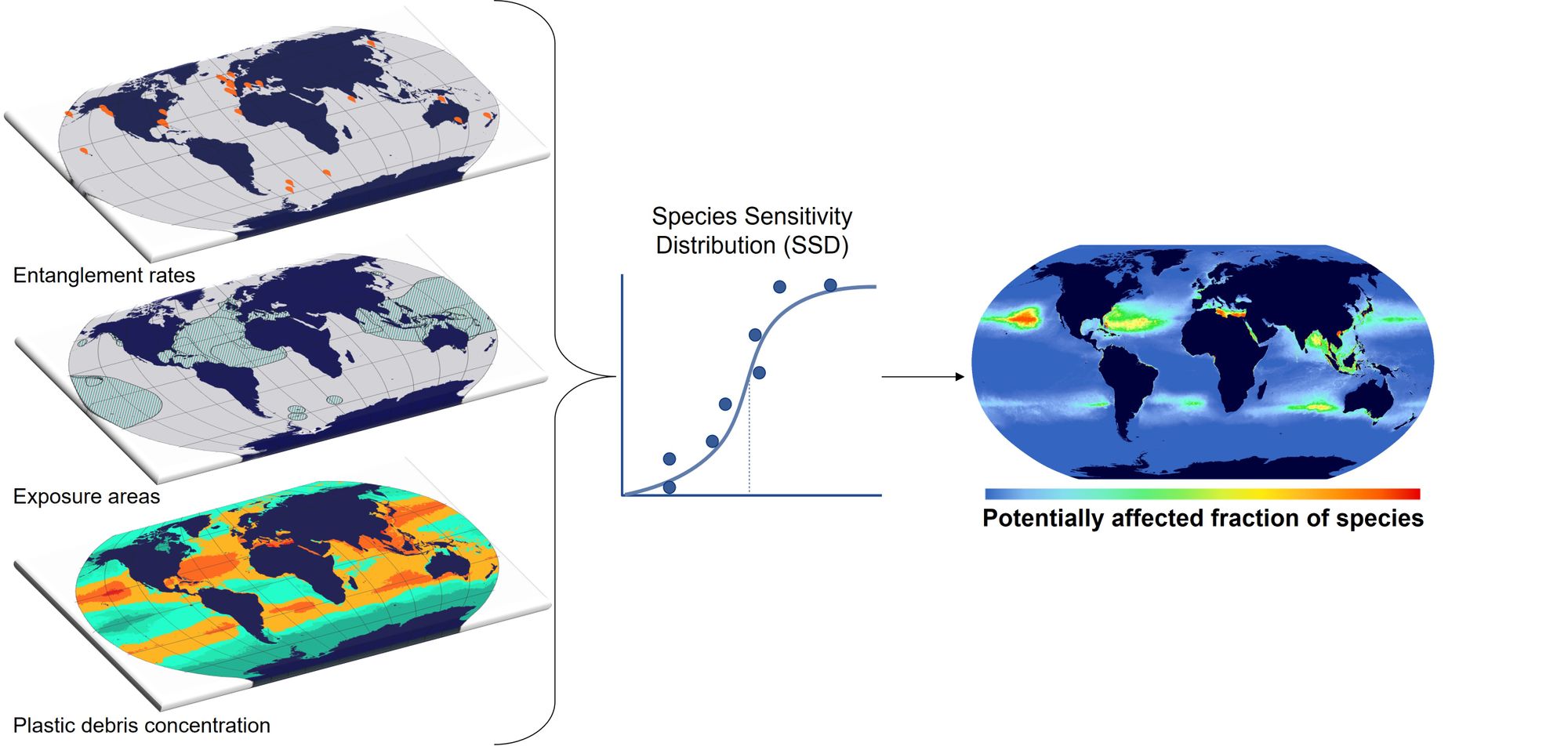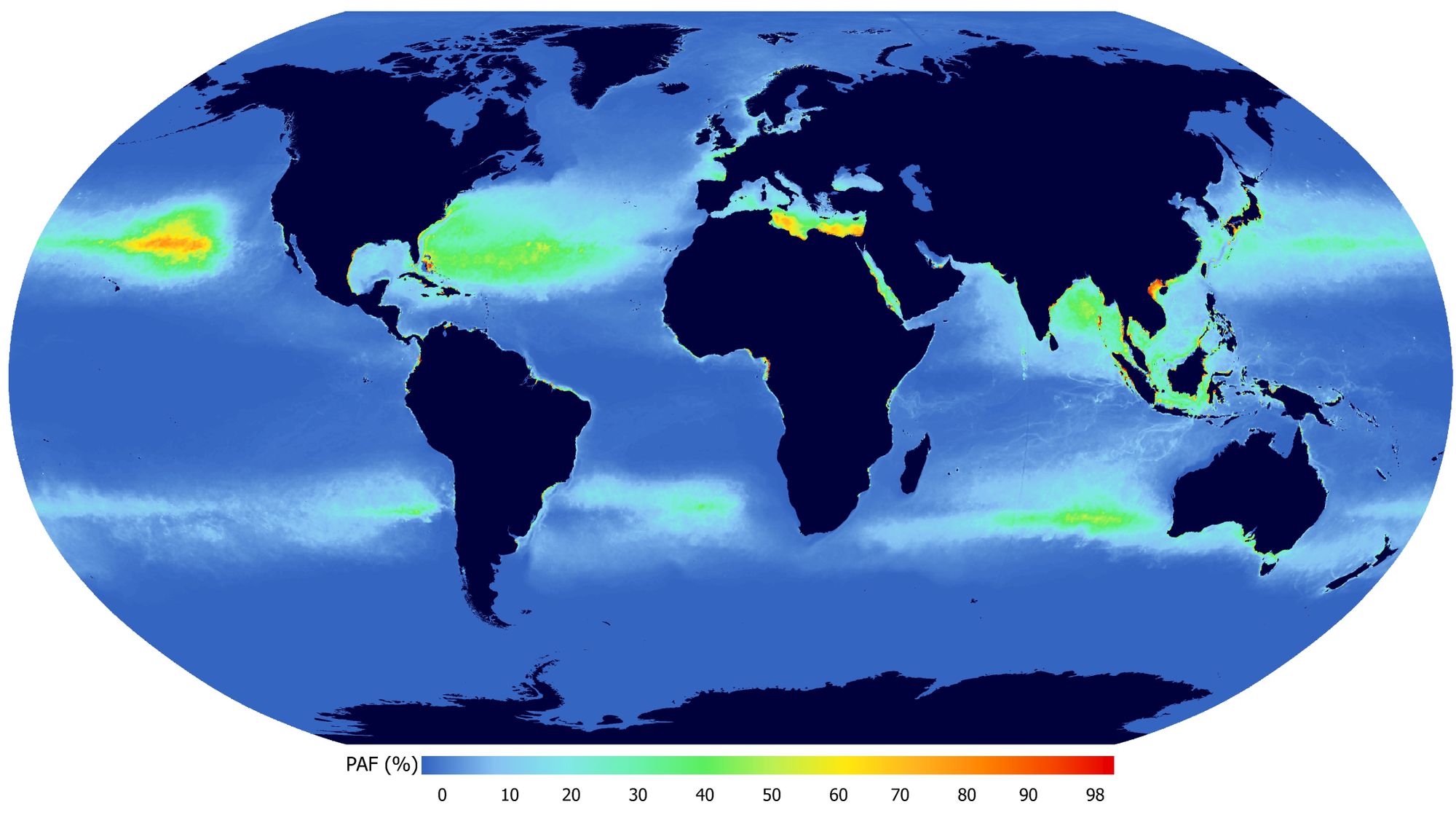New publication: Global distribution of potential impact hotspots for marine plastic debris entanglement

An important component of the ATLANTIS project is the development of global models for impacts of plastic debris on marine ecosystems, in accordance with the life cycle impact assessment (LCIA) framework. As a means towards achieving this goal, we have developed an indicator of potential macroplastic entanglement impact levels, which has now been published in Ecological Indicators: https://doi.org/10.1016/j.ecolind.2021.108509
By combining observed entanglement rates from marine mammals, turtles and birds with the species populations’ ranges and exposure to plastic debris concentrations, we have modelled the potentially affected fraction (PAF) of species. This indicator covers the world’s oceans in a spatially explicit manner, and reveals potential hotspots where a larger fraction of species may be exposed to entanglement impacts. The indicator highlights the global issue of entanglements and communicates parts of the damage potential that mismanaged plastic has on marine biodiversity.

This work has also resulted in the first indicator for macroplastic effects that is ready to be applied in impact assessments. Once a separate model that estimates the distribution patterns, i.e. the fate, of a given plastic “emission” has been fully developed, we are ready to incorporate the impact pathway of macroplastic entanglement in LCIA.

